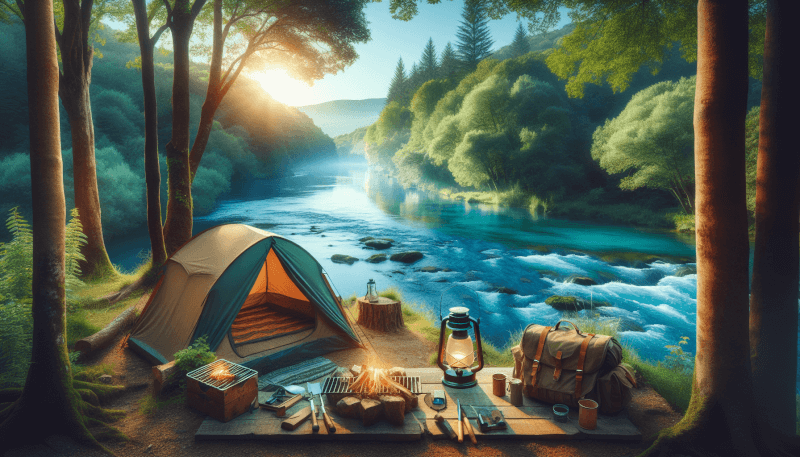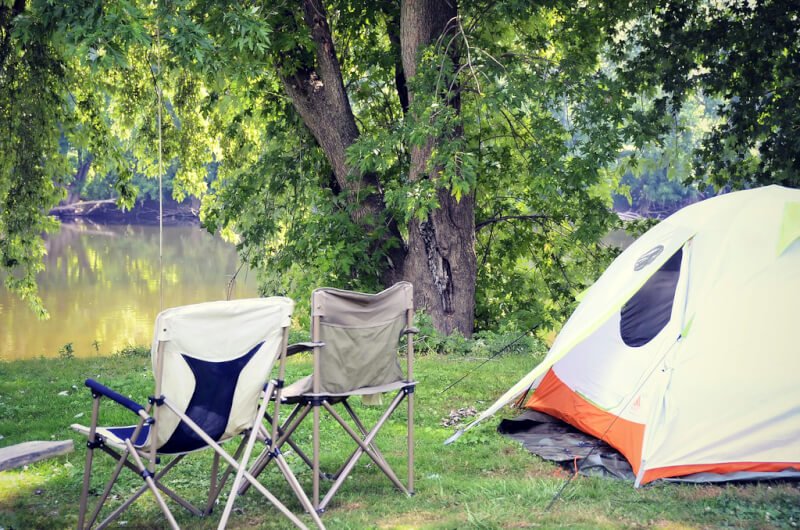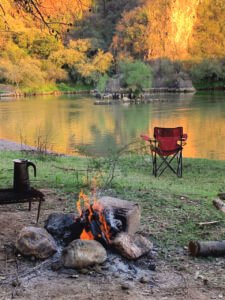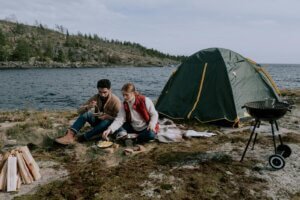If you’re searching for the perfect adventure bursting with tranquility and excitement, look no further than river camping trips. Imagine immersing yourself in nature’s embrace, as you paddle along the gentle currents, surrounded by breathtaking landscapes. Whether you’re a seasoned explorer or a newcomer to the great outdoors, these trips offer a unique opportunity to disconnect from the everyday hustle and bustle, reawakening your senses to the beauty of the world around you. So grab your camping gear, embark on this unforgettable journey, and let the river carry you to new heights of adventure and serenity.
Choosing a Destination
When it comes to planning a river camping trip, one of the first things you need to do is choose a destination. Researching different river camping locations will help you find the perfect spot for your adventure. Consider factors such as the proximity of the campground to your home, as well as the accessibility of the location. You want to make sure that it is not too far away or difficult to reach, especially if you are traveling with family or a larger group.
In addition to the distance and accessibility, it is important to check for campground facilities and amenities. Look for campgrounds that offer clean restrooms and showers, as well as picnic areas and fire pits. Some campgrounds may even have playgrounds or offer rental equipment for activities such as canoeing or fishing. Having access to these amenities can add convenience and enhance your overall camping experience.
Another factor to consider when choosing a destination is the presence of nearby attractions and activities. While the river itself may be the main highlight of your trip, it’s always great to have additional options for entertainment. Look for nearby hiking trails, swimming holes, or even local attractions such as museums or historical sites. These activities can provide a nice balance between relaxing by the river and exploring the surrounding area.
Planning and Preparation
Determining the duration of your camping trip is an essential part of the planning process. Consider how many days you want to spend camping and how much time you would like to allocate for different activities. This will help you create a realistic itinerary and ensure that you make the most of your time in nature.
Creating a camping checklist is another important step in planning a successful river camping trip. Write down all the essential items you will need, including tents, sleeping bags, camping pillows, and cooking utensils. Having a checklist will help you stay organized and ensure that you don’t forget anything important.
Checking weather forecasts is crucial when planning for any outdoor adventure, including river camping trips. Make sure to pack accordingly, taking into consideration both the daytime and nighttime temperatures. It’s always a good idea to bring extra layers and rain gear in case of unexpected weather changes.
Depending on the location and campground, you may need to arrange necessary permits or reservations in advance. Some popular river camping spots require permits, especially during peak seasons. Take the time to research any additional requirements and secure the necessary permits or reservations to avoid any last-minute disappointments.
Essential Equipment
Having the right equipment is key to a comfortable and enjoyable river camping trip. When it comes to tents, sleeping bags, and camping pillows, consider the size and number of people in your group, as well as the durability and weather resistance of the equipment. Investing in quality gear will ensure that you stay warm and dry throughout your trip.
A camp stove, cooking utensils, and food storage are essential for preparing meals while camping. Look for lightweight and portable options that are easy to clean and use. It’s also important to have a water filtration or treatment system to ensure access to clean and safe drinking water during your trip.
Don’t forget to pack camp chairs, tables, and lighting to create a comfortable and functional outdoor living space. These items will make it easier to relax, eat, and socialize around the campfire.
When it comes to outdoor clothing, make sure to pack layers that are suitable for the expected weather conditions. Hiking shoes with good traction are a must, especially if you plan on exploring nearby trails. And don’t forget to bring swimwear if you’re interested in swimming or participating in water sports activities.

River Safety
Safety should always be a top priority when enjoying outdoor activities, especially when it comes to river camping. Take the time to understand the river’s current, depth, and any potential hazards. This information will help you make informed decisions and avoid dangerous situations.
Wearing a life jacket and proper safety gear is essential when camping near or on the river. Even if you are a strong swimmer, a life jacket can provide an extra layer of protection and buoyancy. Make sure to choose a life jacket that fits properly and meets safety standards.
Knowing basic swimming and rescue techniques is also important, especially if you plan on participating in activities such as canoeing, kayaking, or rafting. Take the time to familiarize yourself with these skills and practice them before your trip.
Bringing a first aid kit and emergency supplies is crucial in case of any accidents or injuries. Make sure your first aid kit is well-stocked with essential items such as bandages, antiseptic solutions, and medications. Additionally, it’s important to familiarize yourself with local water safety regulations and adhere to them to ensure a safe and enjoyable camping experience.
Activities and Recreation
River camping trips offer a wide range of activities and recreational opportunities for outdoor enthusiasts. Canoeing, kayaking, or rafting on the river is a popular choice for many campers. These activities allow you to explore different sections of the river and take in the scenic beauty from a unique perspective.
Fishing is another favorite pastime on river camping trips. Whether you’re a seasoned angler or just trying it out for the first time, rivers offer a variety of fish species to catch. Make sure to check local fishing regulations and obtain the necessary permits before casting your line.
Hiking and exploring nearby trails is a great way to immerse yourself in nature and discover hidden gems. From lush forests to breathtaking viewpoints, the trails near rivers are often filled with natural wonders waiting to be explored.
If you’re looking to cool off and relax, swimming and enjoying water sports are popular activities on river camping trips. Whether it’s a quick dip in the river or spending the day paddleboarding or tubing, there’s something for everyone to enjoy.
If you’re a nature enthusiast, birdwatching or wildlife spotting can add an extra layer of excitement to your camping trip. Rivers are often home to a variety of bird species and offer opportunities to see wildlife in their natural habitats.
Campfire Cooking and Meal Ideas
One of the highlights of any camping trip is cooking meals over a campfire. Choosing easy and delicious campfire recipes will ensure that you have tasty meals throughout your trip. From classic favorites like hot dogs and burgers to more gourmet options like foil-wrapped fish or roasted vegetables, there are endless possibilities for campfire cooking.
Using dutch ovens, grills, and cooking techniques such as foil packet cooking will allow you to create a wide range of dishes. Dutch ovens are versatile and can be used to bake, simmer, or roast your meals. Grilling over an open flame adds a smoky flavor and enhances the camping experience.
Meal planning and food storage are important considerations when camping. Plan your meals in advance and make sure to pack ingredients that are easy to store and prepare. Consider using resealable bags or containers to keep your food fresh and organized. It’s also a good idea to pack non-perishable snacks for quick and easy access throughout the day.
No camping trip is complete without indulging in some campfire treats. S’mores, roasted marshmallows, and campfire pies are all popular options for satisfying your sweet tooth. Make sure to pack the necessary ingredients and enjoy these delicious treats with friends and family around the campfire.
Leave No Trace Principles
When camping in natural environments, it is important to minimize our impact on the surroundings. Leave No Trace principles provide guidelines for responsible outdoor behavior to protect and preserve the environment for future generations.
Minimizing impact on the natural environment involves practices such as staying on designated trails, minimizing campfire impacts, and respecting wildlife and vegetation. Avoid trampling on sensitive vegetation and keep a safe distance from wildlife to minimize disturbance.
Properly disposing of waste and trash is crucial to maintaining cleanliness and preventing pollution. Pack out all trash and dispose of it properly in designated receptacles. If there are no trash facilities available, make sure to pack the trash out with you and leave the campsite as you found it.
Respecting vegetation, wildlife, and habitats is essential for maintaining biodiversity and the overall health of the ecosystem. Avoid picking flowers or disturbing plants, and observe wildlife from a safe distance without feeding or approaching them.
Keeping campsites clean and leaving them as found is a key element of Leave No Trace principles. Make sure to clean up after yourself and leave the campsite in the same or better condition than when you arrived. This includes properly extinguishing campfires, packing out all trash, and removing any personal items or structures.
Nighttime Camping Experience
Setting up the campsite for a comfortable sleep is an important aspect of the camping experience. Choose a level and dry spot for your tent, away from potential hazards such as dead trees or overhanging branches. Clear the area from rocks, debris, and any sharp objects that may puncture your tent floor.
Enjoying stargazing and identifying constellations is a peaceful and awe-inspiring activity while camping. Take the time to lay back on a blanket and marvel at the night sky. Consider using a star chart or stargazing app to help you identify different stars, planets, and constellations.
Campfire storytelling and games are a fun way to pass the time and create lasting memories. Gather around the campfire with your fellow campers and take turns sharing stories, jokes, or even scary tales. Playing cards or board games can also provide entertainment during the evenings.
Creating a cozy and relaxing ambiance at the campsite can enhance the nighttime camping experience. Set up outdoor lighting such as lanterns or fairy lights to create a warm and inviting atmosphere. Bring comfortable camping chairs or blankets to sit on and enjoy the sounds of nature as you unwind.
Safety Considerations
Ensuring your safety and the safety of your fellow campers is of utmost importance during a river camping trip. Inform others about your camping plans, including the dates, location, and expected return time. This way, in case of any emergencies, someone will know where to find you and can assist if needed.
Having emergency communication devices or methods is crucial in remote camping areas. While cell phone coverage may be limited, it’s a good idea to carry a satellite phone or a personal locator beacon (PLB) in case of emergencies. These devices can provide a lifeline to emergency services if needed.
Dealing with wildlife encounters is a possibility when camping in natural areas. While wildlife sightings can be exciting, it’s important to maintain a safe distance and never approach or feed wild animals. Familiarize yourself with the local wildlife and any precautions necessary to minimize the chances of negative encounters.
Being aware of weather changes and potential risks is important for the safety of your camping trip. Keep an eye on weather forecasts and be prepared for sudden changes in temperature or unexpected storms. Make sure to pack appropriate clothing and equipment to stay safe and comfortable in changing weather conditions.
Tips for a Memorable River Camping Trip
To make your river camping trip even more memorable, consider the following tips:
- Pack extra dry clothes and rain gear to ensure that you stay comfortable in case of unexpected weather changes.
- Bring insect repellent and sunscreen to protect yourself from annoying bugs and harmful UV rays.
- Keep electronic devices protected from water by using waterproof cases or dry bags.
- Take time to appreciate the natural surroundings and disconnect from technology. Enjoy the tranquility of nature and take in the sights, sounds, and smells around you.
- Make new friends and connect with fellow campers. Camping is a great opportunity to meet people from diverse backgrounds who share a love for the outdoors. Be open to socializing and engaging in conversations with other campers.
By following these tips and implementing the suggestions mentioned in this article, you’re bound to have an incredible river camping trip filled with adventure, relaxation, and lasting memories. Happy camping!




